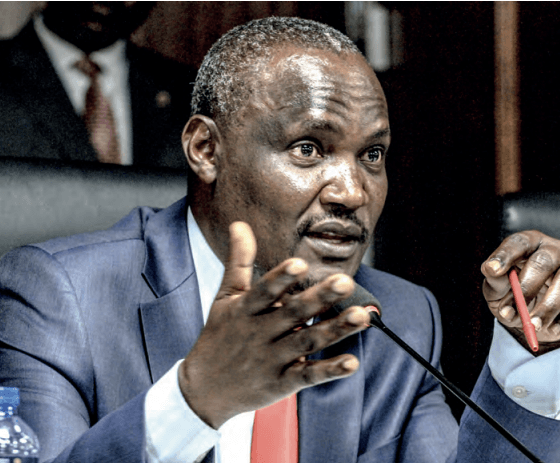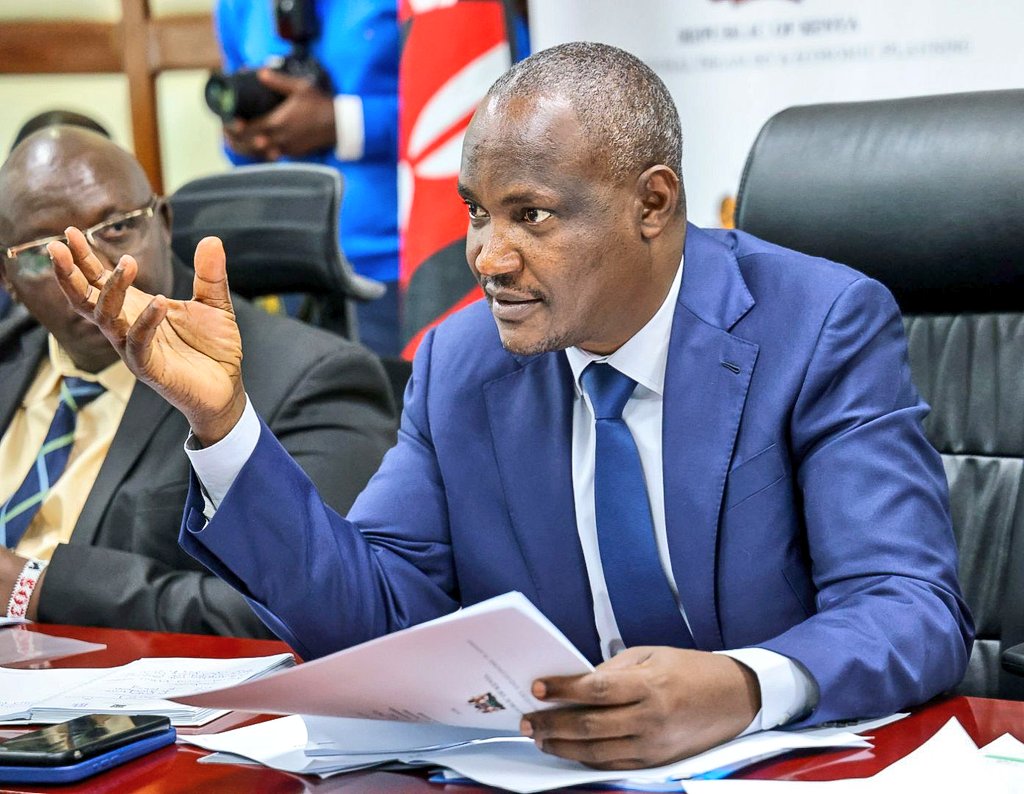

Jobless Kenyans would win big in President William Ruto’s new budget plans going into effect on July 1.
National Treasury data shows the Ruto administration plans to increase hiring for teachers, police recruits, seafarers and Kenyans joining the National Youth Service.
The government also plans salary increases for police and prison warders.
All depends on the final budget, which is expected to pass easily given the President’s support in Parliament.
Treasury Cabinet Secretary John Mbadi also plans to implement Collective Bargaining Agreements for university dons and teachers.
Treasury data shows the Kenya Kwanza administration plans to restore cuts resulting from the collapse of the Finance Bill 2024 after fierce protests led by Gen Z.
In June last year, President Ruto dropped the proposed tax laws aimed to raise about Sh345 billion after youths stormed Parliament, vandalised and set fire to part of it.
As a result of the failed tax laws, budget cuts were imposed to help close the Sh870 billion budget gap, dashing the hopes of Kenyans who hoped to clinch teaching, police, prison warder and other jobs.
Among the shelved plans was the recruitment of about 2,900 police officers, but that collapsed after MPs passed Sh3.2 billion cuts.
President Ruto’s team has now set higher ceilings, tipping ministries and agencies for Sh440 billion more funding, compared with the current year.
Treasury data reveals plans to recruit 10,000 police officers in the next fiscal year and 40,000 young people to the National Youth Service.
About 2,300 civilians are also to be hired gradually to support the National Police Service.
The budget for the National Police Service is set to increase by Sh10 billion.
Kenya Kwanza has also budgeted for 4,000 teachers in primary schools. Half would be hired on permanent terms, the rest as interns.
The government further plans to recruit 18,000 teachers for secondary schools on permanent and pensionable terms.
Another 18,000 teachers would be taken onboard as interns in the plan to hire 40,000 teachers every financial year until 2028.
To actualise the plan, President Ruto’s team has proposed to allocate Sh24 billion more to the Teachers Service Commission for the recruitment.
Budgets for primary education are set for a Sh2 billion raise and secondary school budgets are expected to rise by Sh10 billion.
The government has also budgeted for hiring 3,500 seafarers from July 1 under the Vijana Baharia programme.
Energy budgets are due to rise sharply by Sh110 billion, followed by health at Sh87 billion, while Sh54 billion has been set as the ceiling for security.
The allocation for governance, justice, law and order – including the National Police Service –has also gone up by Sh32 billion.
According to the Draft 2025 Budget Policy Statement, Kenya Kwanza seeks to provide an additional Sh37 billion to the Education sector, to total to Sh781 billion.
“The hard sector ceilings in the FY 2025-26 budget and the Medium Term will form the basis of allocations,” Mbadi said.
Treasury Principal Secretary Chris Kiptoo said the government is keen on managing resources prudently “to support inclusive growth and development”.
“While preparing this budget, all proposed MDAs (Ministry, department and agency) budgets for FY 2025-26 have been scrutinised to ensure quality and alignment to the government’s BETA or Bottom-Up Economic Transformation Agenda,” he said.
The PS said the next budget cycle would focus on “improving the economy, reducing the cost of living as well as enhancing the well-being of Kenyans”.
Already, some of the budgets that were cut would be factored into a second supplementary budget heading to the House for approval.
The Sh67.8 billion additional amounts include Sh10 billion, which has been proposed in the second supplementary estimates.
The money would implement the third phase of salary adjustments for teachers, which were affected by this year’s cuts.
The Draft BPS reveals Treasury has also provided Sh1.6 billion salary adjustments for national police officers and Sh2.2 billion for prison warders.
Treasury has also allocated Sh14.6 billion to cater for shortfalls in the tertiary education funding model and Sh22 billion specifically for universities.
The Sh4.3 billion for fulfilling the CBA for public university staff s is included in the budget estimates.
MDAs, which sustained cuts of Sh34 billion, are also headed for better times. In the adjustments, State House, the Office of Deputy President, Parliament, and Defence are tipped for more funding next fiscal year.
The State House budget could increase by Sh3 billion to hit Sh7.5 billion, should MPs approve the new ceilings.
The increment is in addition to that of the Executive Office of the President, which is set to increase by Sh1 billion totalling to Sh4.6 billion.
The allocation is besides State House’s which is set to jump to Sh7.5 billion from Sh4.3 billion.
Office of the DP would be allocated a maximum of Sh3.5 billion, up from the Sh2.5 billion in the current financial year.
The National Intelligence Service is also set a Sh6 billion increase, pushing its allocation to Sh52 billion.
Defence spending could also increase by Sh45 billion, with estimates indicating an allocation of as much as Sh226 billion.
Parliament would get Sh2 billion more from Sh40 billion.
The Judiciary would get Sh24 billion, up from the current Sh21 billion.
The Roads budget would increase from Sh191 billion to Sh228 billion, an increment of Sh37 billion.
President Ruto’s team is also putting Sh10 billion more to fund rail transport and additional Sh3 billion to support the aviation industries.
To foot the bills, CS Mbadi says the Kenya Kwanza administration is planning to collect more revenue and further cut unnecessary spending.
“Emphasis will be placed on a combination of tax administrative and tax policy reforms,” the Treasury boss said in the draft BPS’s foreword.
He said Kenya Kwanza would minimise tax expenditures, which increased to Sh510 billion in the 2023 period from Sh393 billion reported in 2022.
The government, he said, would also focus on technology to improve collections, seal revenue loopholes and enhance efficiency of the tax system.
Mbadi said the government would focus on revenues that ministries and agencies can raise through public services.
Critics said, however, the budget doesn’t address the key issue fuelling the country’s economic woes, lack of productivity.
Kitui Central MP Makali Mulu said the budget should focus more on putting money in the pockets of wananchi, urging more work to free up the fiscal space.
He conceded, however, that the increased expenditure would stimulate the economy.
“By increasing expenditure, it pushes more money to the people, which ends up triggering more aggregate demand. When demand increases, it positively affects the economy,” Mulu said.
For the economist, the government should focus on projects “to get money into Kenyan’s pockets, not out of it.”
“Budget cuts constrain the economy in terms of growth, things will continue getting worse,” the MP said.
The BPS proposals forms the basis for budgetary allocation after it is approved by Parliament, the Senate and National Assembly.
















